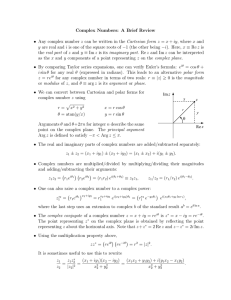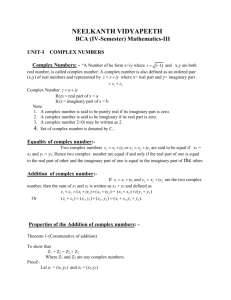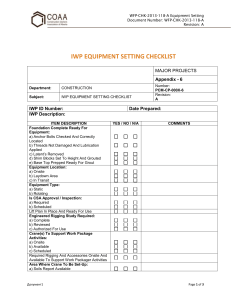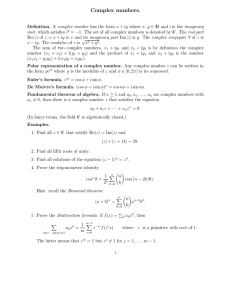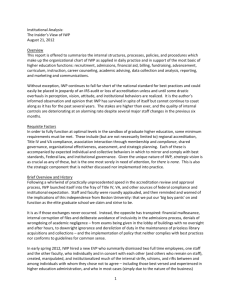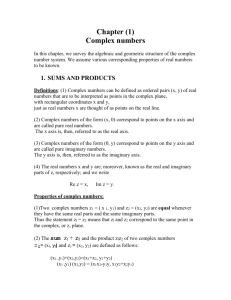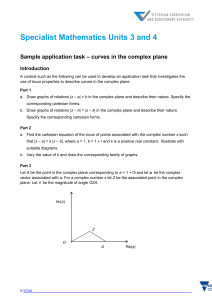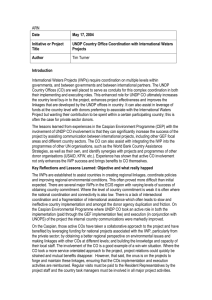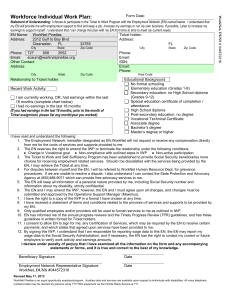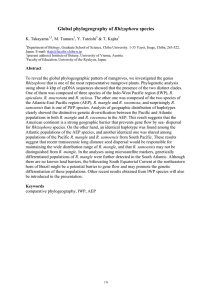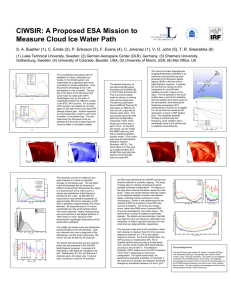Complex Numbers: A Brief Review • y z
advertisement
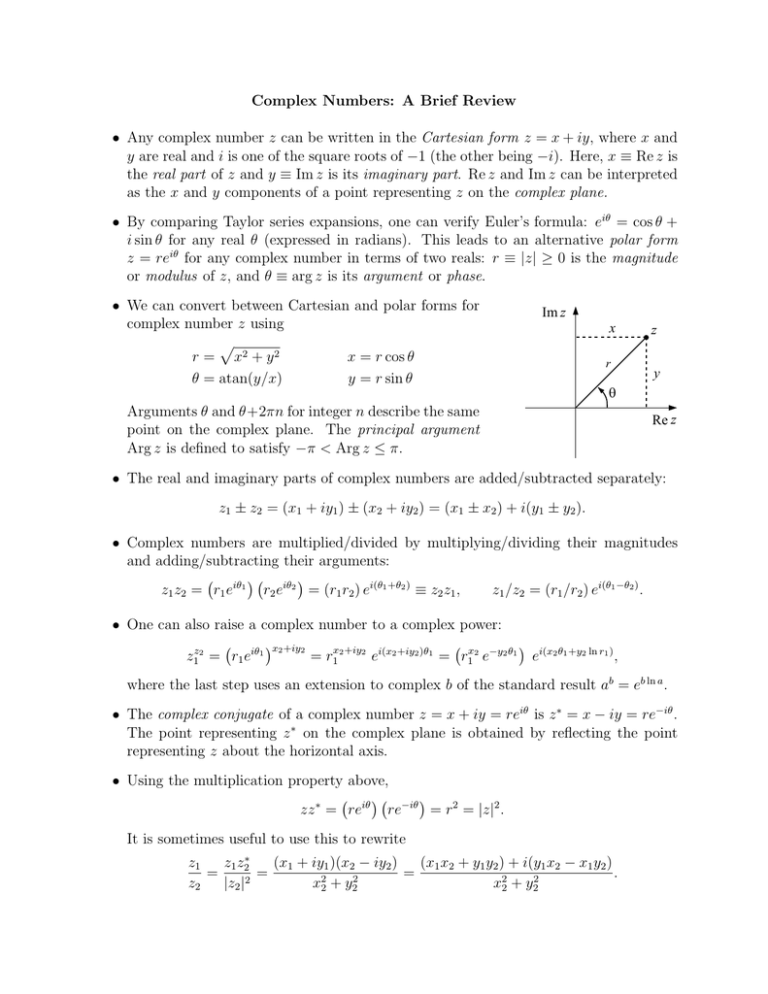
Complex Numbers: A Brief Review • Any complex number z can be written in the Cartesian form z = x + iy, where x and y are real and i is one of the square roots of −1 (the other being −i). Here, x ≡ Re z is the real part of z and y ≡ Im z is its imaginary part. Re z and Im z can be interpreted as the x and y components of a point representing z on the complex plane. • By comparing Taylor series expansions, one can verify Euler’s formula: eiθ = cos θ + i sin θ for any real θ (expressed in radians). This leads to an alternative polar form z = reiθ for any complex number in terms of two reals: r ≡ |z| ≥ 0 is the magnitude or modulus of z, and θ ≡ arg z is its argument or phase. • We can convert between Cartesian and polar forms for complex number z using p x = r cos θ r = x2 + y 2 θ = atan(y/x) y = r sin θ Im z x r z y θ Arguments θ and θ+2πn for integer n describe the same point on the complex plane. The principal argument Arg z is defined to satisfy −π < Arg z ≤ π. Re z • The real and imaginary parts of complex numbers are added/subtracted separately: z1 ± z2 = (x1 + iy1 ) ± (x2 + iy2 ) = (x1 ± x2 ) + i(y1 ± y2 ). • Complex numbers are multiplied/divided by multiplying/dividing their magnitudes and adding/subtracting their arguments: z1 /z2 = (r1 /r2 ) ei(θ1 −θ2 ) . z1 z2 = r1 eiθ1 r2 eiθ2 = (r1 r2 ) ei(θ1 +θ2 ) ≡ z2 z1 , • One can also raise a complex number to a complex power: x2 +iy2 = r1x2 +iy2 ei(x2 +iy2 )θ1 = r1x2 e−y2 θ1 ei(x2 θ1 +y2 ln r1 ) , z1z2 = r1 eiθ1 where the last step uses an extension to complex b of the standard result ab = eb ln a . • The complex conjugate of a complex number z = x + iy = reiθ is z ∗ = x − iy = re−iθ . The point representing z ∗ on the complex plane is obtained by reflecting the point representing z about the horizontal axis. • Using the multiplication property above, zz ∗ = reiθ re−iθ = r2 = |z|2 . It is sometimes useful to use this to rewrite z1 z1 z2∗ (x1 + iy1 )(x2 − iy2 ) (x1 x2 + y1 y2 ) + i(y1 x2 − x1 y2 ) = = = . 2 2 z2 |z2 |2 x2 + y2 x22 + y22
